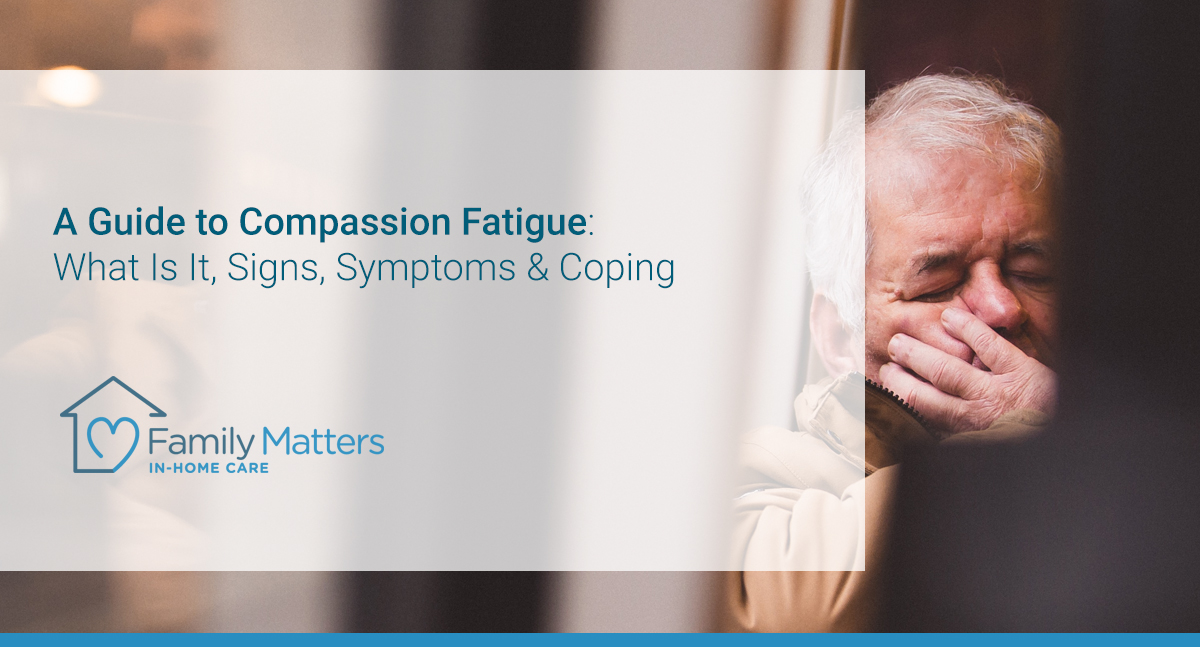
A Guide to Compassion Fatigue: What Is It, Signs, Symptoms & Coping
Every profession has its downsides, even those that primarily involve actively helping people each day. In fact, for individuals who work in high-touch environments where they are supporting people through difficult experiences, compassion fatigue is a common issue.
What Is Compassion Fatigue?
The term “compassion fatigue” can seem somewhat confusing at first glance, given that having a strong sense of compassion is, more often than not, seen as a good thing. That said, those in high-responsibility positions caring for others on a regular basis can experience what is, at its core, a unique form of burnout.
Compassion fatigue refers to the concept of becoming severely emotionally exhausted due to the expectations of a certain position. Hospital workers, therapists, charity workers, caretakers for the elderly, and those in other similar jobs are all capable of developing compassion fatigue; the condition can even affect family members and loved ones of aging adults or people with disabilities.
Even if your caretaking position is not one of an official capacity, regularly supporting a person (or people) dealing with severe health issues, addiction, or trauma can take a toll on your own physical and mental health.
What Are the Signs of Compassion Fatigue?
It can be a bit tricky to tell whether you are experiencing compassion fatigue, as many of the symptoms are similar to that of burnout.
Nevertheless, compassion fatigue can affect your ability to perform your expected tasks at work, as well as how well you show up for family members and friends. Generally, the severity of the fatigue depends on the type of care you provide, the conditions under which you provide it, and how often you do so.
Below are some of the most frequently reported signs of compassion fatigue:
Changes in Mood
Unusual mood shifts — drastic shifts toward apathy, sensitivity, or quickness to anger — are often some of the first signs of compassion fatigue. Additionally, people with compassion fatigue tend to become detached from their jobs, their loved ones, and the activities they used to enjoy, a shift that can affect their relationships as well as the overall quality of their lives.
Anxiety or Depression
Caring for others, especially in high-stress situations, can cause individuals to develop symptoms of anxiety and depression. In many cases, these conditions can be caused by a change in worldview. When a healthcare worker or caregiver deals with difficult realities on a regular basis, it can reform their outlook on life into one that is more complex or troubled.
Addiction
In serious cases, individuals in care positions turn to self-medication to cope with the pressure and stress, meaning unresolved compassion fatigue can lead to addiction.
While some may turn to drugs or behaviors such as alcoholism or gambling, addictions spurred by compassion fatigue do not necessarily involve the misuse of substances; some affected individuals become addicted to working at a frequency that is unhealthy.
Physical Symptoms
While most of the symptoms of compassion fatigue center on the individual’s mental health, the condition can manifest itself physically as well, causing things like excessive tiredness, insomnia, headaches, and changes in appetite.
Dealing With Compassion Fatigue
If you believe you may be dealing with compassion fatigue in your role as a caretaker, you’re not alone. The condition is an unfortunate circumstance that often arises in the midst of such exhausting yet important work.
Thankfully, there are ways you can face your compassion fatigue head-on in order to improve your quality of life. Not only will doing so benefit you directly, but it will also strengthen your relationships and improve your ability to complete your work responsibilities without sacrificing your own well-being.
The main way to handle compassion fatigue is to prioritize self-care; taking the time to care for yourself as a caregiver is key. Of course, remembering your self-care routines can be tricky, especially if the person or people you’re caring for need your time and attention at every moment, but you can’t do your best if you don’t feel your best.
With that said, make sure to get enough sleep, keep up with physical exercise, drink plenty of water, and eat healthy foods throughout the day. When these daily practices become habits, your next step would be weekly or monthly self-care activities like therapy, massages, and days off from work.
Managing Compassion Fatigue
The work you do can be exceedingly difficult, and you deserve recognition for it, even if it mostly comes from yourself. If you’re struggling with compassion fatigue, take the time to appreciate the effort you put in and be patient with yourself as you improve your work-life balance.
If you or your family member is considering in-home care as part of a plan to age in place, contact Family Matters In-Home Care today for a free consultation. Our team is dedicated to supporting your family and helping older adults enjoy life in the comfort of their own home for as long as possible.
Some of the services offered by Family Matter In-Home Care include: Alzheimer’s & Dementia Care, Bed & Wheelchair Transfer Assistance, Companionship, Housekeeping & Meal Preparation, Personal Care, Recovery Care, and Transportation.
Serving the San Francisco Bay Area and Greater San Diego, Family Matter In-Home Care has offices throughout California including: Campbell, CA, Roseville, CA, San Marcos, CA, and San Mateo, CA.
